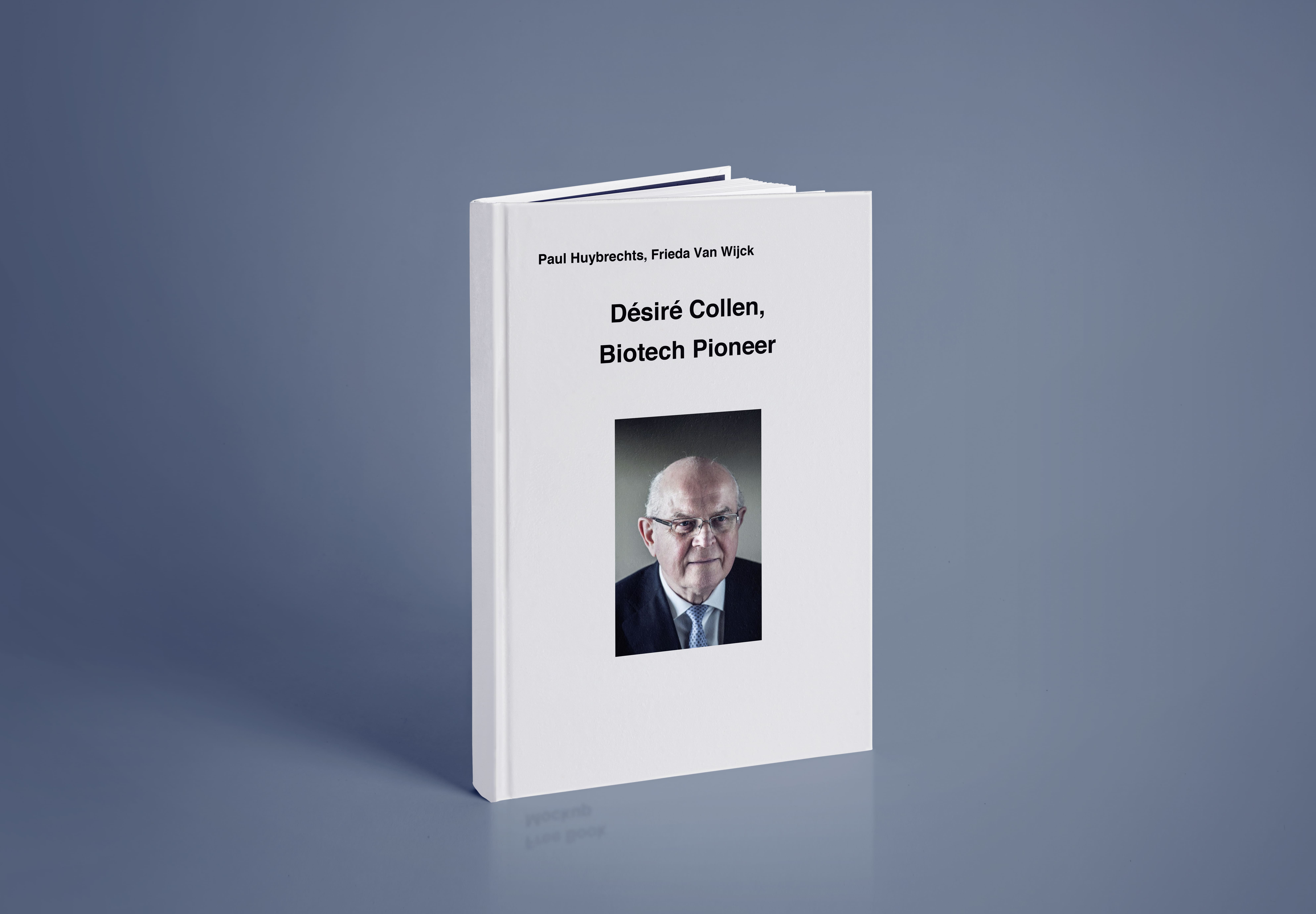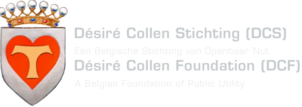Book
Désiré Collen, Biotech Pioneer
A thrilling story of daring scientists and their medical breakthroughs.
How a trailblazing discovery led to many leaps forward and made KU Leuven one of the world's leading scientific institutions.

Désiré Collen, Biotech Pioneer relates the fascinating story of scientific discovery in a time when biotechnology was not yet a science. Although the cultivation and cross fertilization of plants were, strictly speaking, biotechnological techniques, modern biotechnology dates from the early 1970s, when pioneers such as biochemist Herbert Boyer from the university of California managed to transfer genetic material into a bacterium. Together with venture capitalist Robert Swanson, Boyer set up Genentech, one of the first genetic engineering companies.
Just a few years later, on the other side of the Atlantic, in Leuven, Désiré Collen discovered t-PA, the enzyme responsible for fibrinolysis, or the dissolving of blood clots. Clogged arteries were then still one of the major causes of death. The ensuing cooperation between Collen and Genentech was the beginning of a long-lasting success story, from which not only Collen but also scientific research and the University of Leuven benefitted greatly for many years. According to a Reuters ranking, KU Leuven has been, from 2016 onwards, the most innovative university in Europe. Flanders and Belgium served as the cradle of several highly successful biotech companies.
t-PA was a relatively expensive medicine, and Collen went on to develop a much cheaper clot-dissolving remedy to benefit patients in less affluent countries. He failed, however, to find the necessary finances for Phase 3 trials. Meanwhile, he had set up ThromboGenics, a company which later specialized in ophthalmology. Collen continued to stimulate and finance research in other fields, such as the cardiovascular research of Peter Carmeliet. In 2013 he left ThromboGenics, following a difference in views on the company’s focus, and in 2015 he set up Fund+, a biotech-oriented investment firm. Fund+ has meanwhile acquired a prominent place among European biotech investment funds and has scored some astonishing early successes. In June 2020, Fund+ had 13 companies in its portfolio, with several more waiting to come on board.
Frieda Van Wijck (1950) holds a master’s degree in media and communications from the University of Leuven (KU Leuven) and started her career as a regional journalist for the newspaper Het Laatste Nieuws. She later worked as a journalist for radio and television station VRT, the Dutch-language public broadcaster in Belgium, and as a talk-show host for the same station. She has interviewed numerous Belgian and international personalities, such as former US Secretary of State Madeleine Albright, actress Jane Fonda, Nazi hunter Simon Wiesenthal, Spanish chef Ferran Adrià, author Isabel Allende, natural historian David Attenborough and athlete Michael Johnson. She has written columns and occasional articles for several magazines and is a keen gardener, a regular moviegoer and an avid reader. She is also involved as a volunteer with Luisterpunt, a library for the visually impaired.
Paul Huybrechts (1946) studied at the University of Leuven (KU Leuven), graduating with a master’s in political sciences. During his student years, he wrote for Dutch-language magazines, and later became a full-time journalist for the newspaper De Morgen, where he specialized in economic and financial news. He moved to the financial newspaper De Tijd, first as a journalist and later, after a brief period at the private banker Dewaay-Servais, as managing director. He is the author of SOS NMBS and Hugo’s Heilige Vuur, and the co-author of Naar Grijsland and Een lang leven gezond. In his spare time, he likes listening to classical music, going to concerts and visiting museums of modern art. He also spends time cycling and tending his vegetable garden.
The authors live in Leuven, and Désiré Collen, Biotech Pioneer is their first project together.
ISBN: 978-1-64999-608-4
